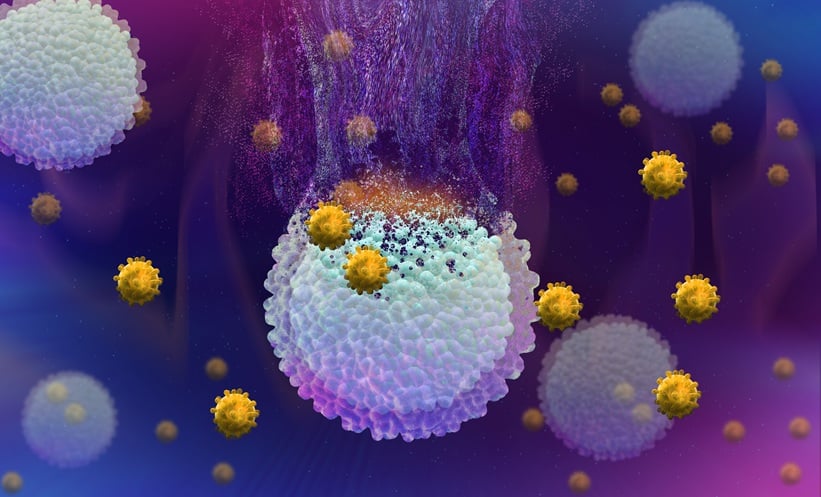DESPITE significant advancements in cancer therapeutics, the high costs and severe side effects of current treatments hinder their use in cancer prevention. Effective strategies for immunoprevention are urgently needed, particularly for highly immunogenic cancers such as cutaneous squamous cell carcinoma (SCC), the second most common cancer. Actinic keratosis (AK), a precursor to SCC, presents an opportunity for early intervention. However, current treatments for AK, including 5-fluorouracil (5-FU) and photodynamic therapy, lack long-term efficacy in preventing SCC.
This study highlights the potential of a novel immunotherapy combining calcipotriol, a low-calcemic vitamin D analogue, with 5-FU. Previous research has shown that this combination not only clears AKs effectively but also reduces SCC risk for up to three years post-treatment. Calcipotriol induces the expression of thymic stromal lymphopoietin (TSLP) in premalignant keratinocytes, which, when combined with 5-FU, triggers a robust immune response characterised by T cell infiltration and tissue-resident memory T (TRM) cell formation.
In a recent open-label clinical trial, the study identified CD4+ T helper 2 (Th2) cells as the dominant immune cells in AKs following calcipotriol-plus–5-FU treatment. Th2 cells, activated by TSLP, played a crucial role in eliminating precancerous keratinocytes through toxic autophagy, anoikis, and apoptosis. The cytokines IL-4 and IL-13, produced by Th2 cells, induced IL-24, a molecule essential for antitumor immunity. IL-24’s cancer-selective effects underscore its potential as a safe and effective therapeutic target.
Remarkably, the induced Th2 immunity persisted in the skin, reactivating upon AK development to prevent progression to SCC. This long-term immune memory, combined with the specificity of TSLP induction in premalignant rather than normal keratinocytes, positions calcipotriol-plus–5-FU therapy as a groundbreaking approach to skin cancer prevention.
By leveraging the immune-activating properties of epithelial cells, this study highlights the transformative potential of Th2 immunity in early cancer intervention, paving the way for innovative strategies in cancer immunoprevention and treatment.
Reference
Oka T et al. T helper 2 cell-directed immunotherapy eliminates precancerous skin lesions. J Clin Invest. 2025;135(1):e183274.






